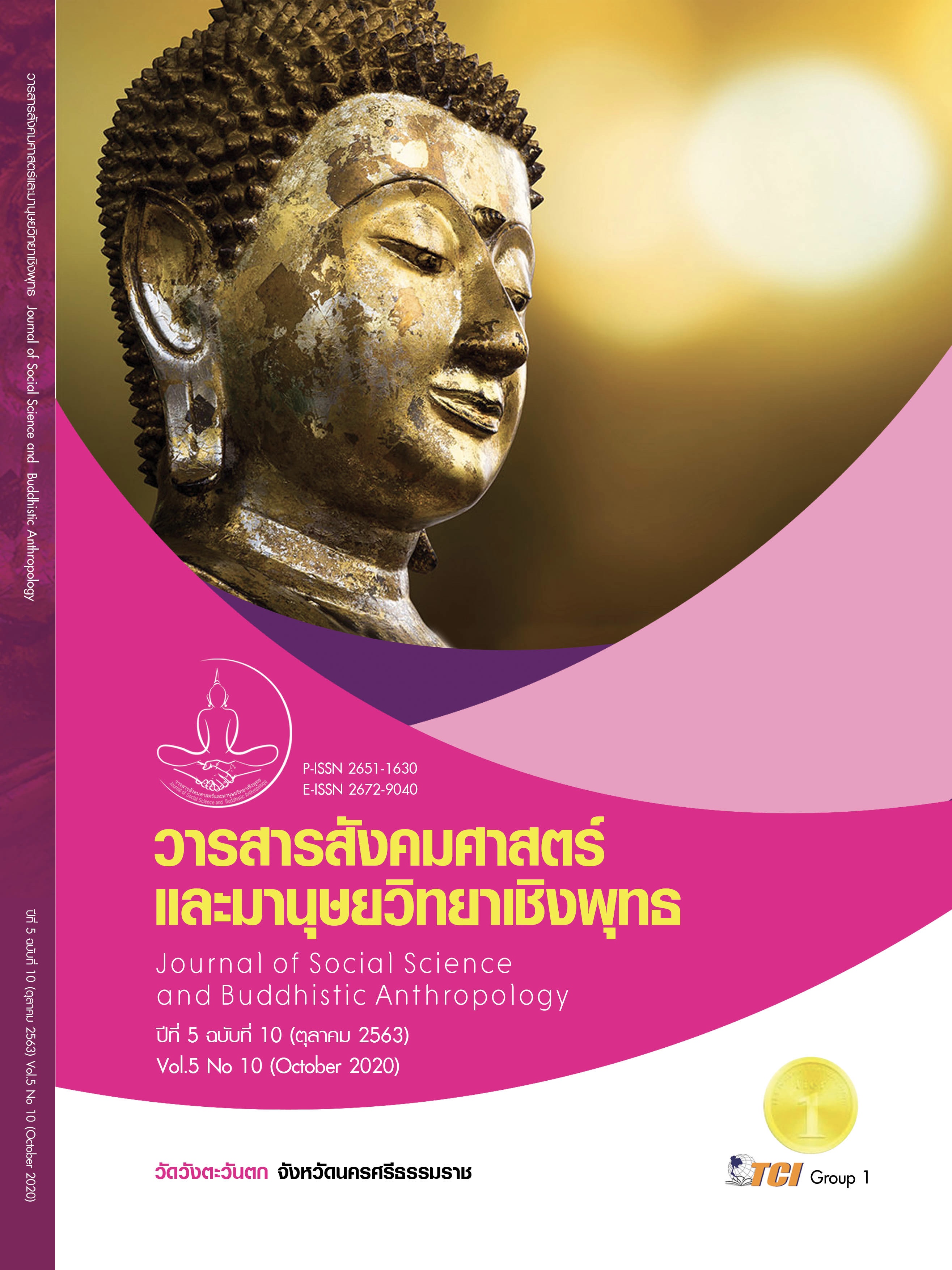LOCAL COMMUNITY FOREST MANAGEMENT IN THE NORTHEASTERN REGION IN ACCORDANCE WITH SUFFICIENCY ECONOMY PHILOSOPHY
Keywords:
Management, Local Community Forests, Northeastern Region, Sufficiency Economy PhilosophyAbstract
The Objectives of this research article were to study the management of local community forests in the northeastern region according to the sufficiency economy philosophy. The following issues are: 1) concepts and principles of local community forest management, 2) model of local community forest management, and 3) problems and obstacles for local community forest management. It is a qualitative research by means of studying related documents, the fieldwork in an in-depth interview and participatory observation. The key informant groups used in this research were community leaders, monks, local residents, 19 scholars and provincial forestry officers. The data were analyzed by descriptive method according to the inductive method. The results of the research were as follows: 1) concept and principles of local community forest management, the beliefs and culture are based on local philosophers and monks as a base to drive the community through the concept of sufficiency economy philosophy by adopting local culture and traditions as a guideline for community forest management, for example, bringing the belief in the ghost “Don Poo Ta” for becoming a strategy to save the forest through the rituals of beliefs of the communities in each places, 2) the model of local community forest management, by applying the principles of unity with working as a team of people in the community, this is based on external factors including government regulations, support from external organizations and from other community forest network partners to create a process of linking activities and 3) problems and obstacles in local community forest management in the implementation of government policies and mechanisms, there is a problem that arises is that people lack understanding of the law of the Royal Forest Department causing them to comply with government policies incorrectly, and obstacles in the management of local community forests is the lack of government support budget sufficiency.
References
กิติชัย รัตนะ. (2551). กลวิธีการสร้างเครือข่ายการเรียนรู้และกระบวนการมีส่วนร่วมในการพัฒนาสังคมและสิ่งแวดล้อม. กรุงเทพมหานคร: มหาวิทยาลัยเกษตรศาสตร์.
เกษม จันทร์แก้ว. (2547). การจัดการสิ่งแวดล้อมแบบผสมผสาน. กรุงเทพมหานคร: ภาพพิมพ์.
โกมล แพรกทอง. (2535). แนวทางการจัดการป่าชุมชน. กรุงเทพมหานคร: กรมป่าไม้ กระทรวงเกษตรและสหกรณ์.
วราพร ศรีสุพรรณ. (2537). สถาบันการศึกษากับการสร้างหลักแห่งคุณธรรมใหม่เพื่อมนุษย์และสิ่งแวดล้อม. กรุงเทพมหานคร: นิเวศวิทยา.
ศูนย์มานุษยวิทยาสิรินธร (องค์การมหาชน). (2548). ความรู้กับการเมืองเรื่องทรัพยากร. กรุงเทพมหานคร: โอ.เอส.พริ้นติ้งเฮ้าส์.
สมพร แสงชัย. (2545). สิ่งแวดล้อม อุดมการณ์ การเมือง และการพัฒนาที่ยั่งยืน. กรุงเทพมหานคร: สถาบันบัณฑิตพัฒนบริหารศาสตร์ โครงการบัณฑิตศึกษาการจัดการสิ่งแวดล้อม.
สมศักดิ์ สุขวงศ์. (2538). ป่าชุมชน: ทางเลือกในการฟื้นฟูอนุรักษ์ป่าไม้ และทรัพยากร ธรรมชาติ. วารสารข่าวสารป่าชุมชน, 2(3),28-35.
เสน่ห์ จามริก และคณะ. (2536). โครงการวิจัยเชิงปฏิบัติการ ป่าชุมชนในประเทศไทย: แนวทางการพัฒนา. กรุงเทพมหานคร: สถาบันชุมชนท้องถิ่นพัฒนา.
Avner, D. (2000). The environment between theory and practice. New York: Oxford University.
Padmasiri De Silva. (1998). Environmental philosophy and ethics in Buddhism. London: Antony Rowe.









